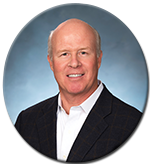Bob’s Ramble: Safeguarding mental health during these tumultuous times
As we navigate away from the worst of the COVID-19 health crisis, many of us are readjusting to a work-life that’s primarily in public office spaces. Not so for everyone, of course. Some, like those that work for local municipalities, have likely been back in the office for some time, or never left the office to begin with.
No matter your working status – in-person, remote, or hybrid – we have been (and continue to be) living through a tumultuous time, which means it’s especially critical to monitor and prioritize your mental health needs. And, yes, I mean prioritizing your mental health over work-related to-dos! Losing touch with these needs will only lead to more severe burnout on the job, as well as a laundry list of other health concerns.
While many things can contribute to burnout at work, major shifts in the global landscape (like the few that we’re living through now) will often coincide with spikes of employee burnout and mental health challenges.
At EngageSmart, we’ve recently increased attention to time-off for our employees by implementing Wellbeing Days, paid holidays that will hopefully give employees more free time to spend with family, recharge, or pursue the activities that bring them joy. All three of the newly added holidays coincide with an existing day of observance that touches on employee health: Employee Appreciation Day (March 4), World Health Day (April 7), and World Mental Health Day (October 10). This time off impacts our customer’s experience, too; a happier, well-rested workforce is often a more productive workforce, which means additional “holidays” will enable all EngageSmart people to better serve our customers. But, above all, this increased focus stems from an organizational commitment to take care of our employees. As valued community members and the lifeblood of our solutions, the wellbeing of the EngageSmart staff takes precedent at all levels.
Now, I can’t tell you to take a day off to recharge – but you should! And if you truly can’t because of how essential your role is to organizational operations, at least try to be cognizant of your mental health needs as they ebb and flow.
This advice makes me think of a fantastic piece written by registered psychotherapist Elizabeth Scarlett for our team over at SimplePractice called, “Creating an Affordable and Sustainable Self-Care Plan.” In the article, Scarlett lays out her strategy for creating sustainable self-care plans that are uniquely built on a person-by-person basis. It begins by creating a list of what energizes you, whether that be a specific form of movement, a creative hobby, or a spiritual practice, whatever that means to you. As she says:
“This first step is extremely personal and can’t be answered by the internet or your peers. One person’s idea of relaxation may be uncomfortable, boring, or too similar to work for someone else.” Personally, I relax while listening to music, reading, exercising, and spending time with my family.
I would sincerely suggest checking out the interesting, actionable article (which you can read here) for the full strategy. In the meantime, do what you can to take care of your mind during this crazy time, and be patient with yourself as we continue to define what “normal” looks like.

